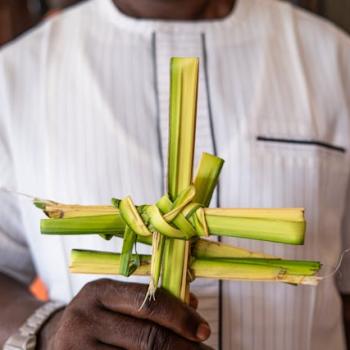Comparative Theology will also consider the musings of those who dismiss religion as nonsense. Sparring with atheists, agnostics, and anti-theists enlivens theological acuity. Cardinal Bonomi alleged, "The best way to beat the heretics is not to deserve their criticisms," but maybe the best way to engage "heretics" or "apostates" is to learn via reciprocal probing of merits and flaws.
Additionalincentives for Comparative Theology are curiosity, enjoyment, awe, and the quest for beauty and truth. As Philip Novak indicates, "It is often upon an initial opening of the heart in wonder and delight that all further study depends." In performing Comparative Theology, we hone critical thinking, which helps us be less easily fooled by charlatans and differentiate "sick religion" from faith that is healthy, good, and true. Comparative Theology is "faith seeking understanding," which inquires into the truth, consistency, and explanatory power of the belief systems it interacts with. At the same time, it reveals resources for building empathy, tolerance, and love in our career, family, and other relationships. "Instead of filling the gaps of knowledge with imaginary dragons or secretly looking down on the barbarians, let us get acquainted with our new neighbors in the global village and learn to love them" (Richard Wolff). Surah 49:13 (Al-Hujuraat) in the Qur'an congruently exults, "O mankind! Lo! We have created you male and female, and have made you nations and tribes that ye may know one another."
Many Buddhists, Hindus, Jews, Christians, Muslims, and others throughout history, have believed at some level that Christianity or Hinduism or Islam is not just a religion, tradition, culture, or one of many equally valid worldviews, but that the Torah, Qur'an,the teachings of Buddha, or the person of Jesus, convey or embody more fully than anything (or anyone) else the truest insights about Ultimate Reality, what it means to be fully human, and how to best live our lives relating to each other and the Divine. If any of these faiths or none are essentially or partly true, the implications are enormous. To simply dismiss the question with a yawn, "who knows what is right?" or "we all basically say the same thing," is paternalistic and epistemologically lazy. Comparative Theology will not allow it.
Theodore Ludwig concludes, "Religion has to do with fundamental human issues and concerns. Who am I? . . . How can we find the life that is real and fulfilling? . . . Does life actually have any meaning -- any real meaning -- or do we just live and die in the small frame of a pointless, accidental cycle of the universe?" Because these deliberations are not confined to one tradition, Comparative Theology provides the opportunity to ponder "the distilled wisdom of the human race" (Huston Smith).
But lest we forget, "Comparative Theology Today" is first, finally, and foremost about God. C.S. Lewis in his provocative essay, "Learning in War-Time" puts it this way, "the pursuit of knowledge and beauty . . . for their own sake . . . does not exclude their being for God's sake . . . We can therefore pursue knowledge as such, and beauty as such, in the sure confidence that by so doing we are either advancing to the vision of God ourselves or indirectly helping others to do so." Francis Clooney maintains:
Theology, deep learning across religious borders . . . will always be a journey in faith. It will be from, for, and about God, whose grace keeps making room for all of us as we find our way faithfully in a world of religious diversity. That for me the work of comparative theology finally discloses a still deeper encounter with Jesus Christ only intensifies the commitment to learn from . . . religious diversity . . . In Christ there need not be any fear of what we might learn, there is only the Truth that sets us free.
"As iron sharpens iron, so does one person (or religious tradition) sharpen another" (Proverbs 27:17) is valuable because it enhances our capacity to love and enjoy God forever by tuning the mind for the same purpose Bach crafted music, "for the glory of God and the refreshment of the human spirit" (Wilibald Gurlitt). So, whether we read or think or whatever we do, may it all be for the glory of God (1 Corinthians 10:31). Martin Luther King, Jr. appends, "No matter how small one thinks his life's work is in terms of the norms of the world . . . it has cosmic significance if he is serving humanity and doing the will of God."
As Comparative Theologians today, let us as be like the biblical David who served the purpose of God in his generation (Acts 13:36, NRSV) by comparing theology as Michelangelo carved, as Ella Fitzgerald sang, as the Keralan Kathakali dance, as Pablo Neruda spoke poetry, as Shusaka Endo penned prose. When like the biblical David, we go to our ancestors (Acts 13:37), may we then kneel as faithful workers joyfully receiving the Divine invitation, "Well done, good and faithful servant. You have been faithful over a little; I will set you over much. Enter into the joy of your master" (Matthew 25:21, ESV).
This article was previously published in the Journal of Comparative Theology (March 2010) and is reprinted with permission. Refer to the original publication for full reference information.
Benjamin B. DeVan completed his A.A. at Young Harris College, a B.S. at Berry College, his M.A. in Counseling atAsbury Theological Seminary, and his M.Div. at Duke University before enrolling at Harvard (Th.M., 2010) forfurther study in world religions, with a thesis on Evangelical Christians and Islam.




